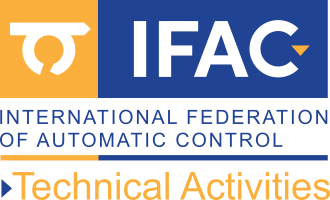Scope
The scope of TC 9-5 is to study, investigate and propose ways in which the control and automation systems community can enhance an understanding of the critical interplay of culture and technology, especially in the international system. This purposes resolves into a series of important activities as follows:
- TC 9-5 explores and highlights ways in which IFAC can use its own systems and control science capabilities to enhance international stability and build a more peaceful world and promote humanitarian goals as set out by the UNHCR and similar organisations, to the end that all life is actively valued.
- TC 9-5 promotes environmental and socio-economic sustainability towards a more sustainable world. Our committee takes a "g-local" perspective - local and regional issues have global system effects and so we investigate systems in both local and global contexts.
- TC 9-5 actively promotes diversity and inclusion goals of IFAC, including equality based on ethnic, religious, special needs, cultural, gender, sexuality and other dimensions of marginalization in social systems. It investigates practical ways in which this can be enhanced in STEM communities globally. To this end, TC 9-5 also actively investigates ways that automation and control systems and science can be used to satisfy the cultural diversity aims of UNESCO.
- TC 9-5 promotes ethical engineering as a foundational activity of the IFAC community.
TC 9-5 brings together researchers and practitioners from a variety of disciplines, including control and automation systems engineers, social scientists, information technologists, mathematicians and many other disciplines to address issues related to global system stability.
Examples of Activities in Scope
To give an idea of the broad scope of our activities here is an overview of 20 research areas in which TC9/5 has been actively publishing over the last ten years, with examples of what we have been working on:
- Advanced Robotics: For example the application of robots in “agile” manufacturing, robot swarms for landmine clearance (humanitarian demining)
- Cross-Cultural Aspects of Engineering: For example the application of universal value theories in engineering development methodologies
- UNESCO Goals: for example the deployment of automation technologies for cultural exchange using advanced data systems and metadata standards.
- International Development
- Engineering Ethics: For example process-based engineering ethics (in process and production automation (Production 4.0).
- Health Informatics and Tele-Medicine Applications: For example, an assessment of engineering management issues for large-scale telemedicine interventions in post-conflict developing countries.
- Environmental Systems: For example a review of environmental pressures and a control systems perspective of causes and effects.
- Energy Systems: For example country case studies of energy system failure with analysis of causes and effects, renewable energies in developing countries.
- Terrorism: For example the application of control systems theories to an analysis of global terrorism.
- Engineering Education: For example reports on engineering management projects to development new education programs in post-conflict regions to improve stability and build new capacities.
- Technological Factors in Conflict and Other Unstable Regions: For example, country case studies of the role of international policy upon stabilization in post-conflict regions
- Engineering Applications for Environmental Stability: For example End of Life Management (EOL) - automated industrial systems for intelligent disassembly and re-use
- Enterprise Integration Technologies and agile manufacturing: For example the adoption of supply chain integration systems in Post-Conflict countries.
- Technology Innovation and Knowledge Networks: For example the application of knowledge management and innovation systems to improve stability in less stable regions
- Control Systems Approaches to Conflict Resolution: For example cybernetic and system theory applied to global and regional conflict and negotiations
- Cost Oriented Automation: For example, low cost service robots for poorer regions
- Social Networks: for example, web 2.0 applications which improve stability by encouraging cross-cultural interactions and understanding
- Intelligent systems and applications in e-agriculture
- Sustainable design and control using human-centred systems engineering design and deployment methodologies and strategies.
- Modelling decision-making processes in national and international political systems.

